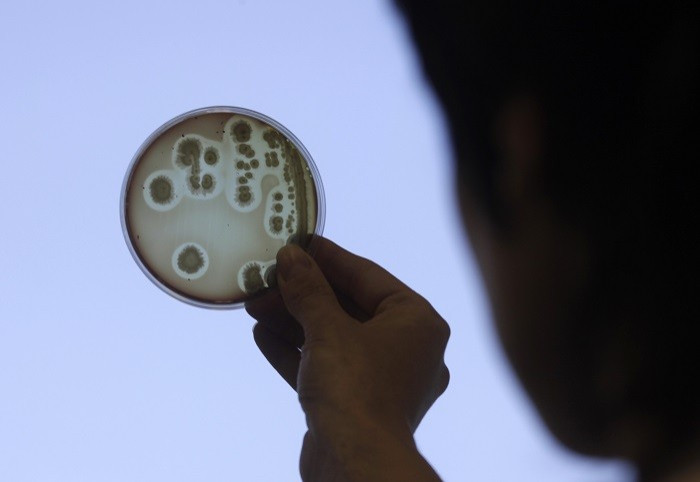Bacteria that resist the antibiotic of last resort found in UK

Scientists have warned that the world is teetering on the brink of a post-antibiotic era although currrent levels of threat to human health is low. Medics in the UK believed they had three years before colistin-resistance would spread from China to the UK. But the Animal and Plant Health Agency has discovered colistin-resistant bacteria on three pig farms.
Public Health England has gone through 24,000 bacterial samples it keeps from cases between 2012 and 2015. Colistin-resistance was found in 15 of them, including samples of Salmonella and E. Coli, according to a BBC report.
At least two NHS patients have been infected with E.Coli and others with salmonella that cannot be treated with colistin. Professor Timothy Walsh, of Cardiff Institute of Infection & Immunity at Cardiff University said it was a 'disturbing breach' of our last line of defence against infection and said that the risk to human health 'could not be underestimated'
Public Health England warned the public to reduce risk of infection by cooking food properly to kill any bacteria. Prof Alan Johnson, from Public Health England, said: "Our assessment is that the public health risk posed by this gene is currently considered very low, but is subject to ongoing review as more information becomes available.
"The organisms identified can be killed by cooking your food properly and all the bacteria we identified with this gene were responsive to other antibiotics, called carbapenems."
Cóilín Nunan, Scientific Adviser to the Alliance to Save Our Antibiotics, told the Telegraph: "Despite scientists saying that resistance to this last-resort antibiotic is likely to be spreading from farm animals to humans, it still remains completely legal in the UK and in most EU countries to routinely feed colistin to large groups of intensively farmed animals, even when no disease has been diagnosed in any of the animals."
When all other antibiotics fail, doctors use colistin, which is frequently used for mass medication of intensively farmed pigs and poultry. Scientists believe that the resistance gene has spread from farm animals to humans because the antibiotic is used more extensively in veterinary medicine than in human medicine.
Campaigners are calling for a ban of colistin in animals. However, the Department for Environment, Food and Rural Affairs said colistin made up just 0.2% of the antibiotics used in livestock in the UK.
© Copyright IBTimes 2025. All rights reserved.






















